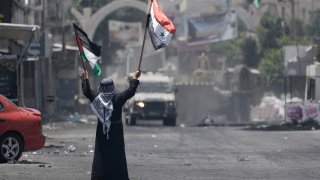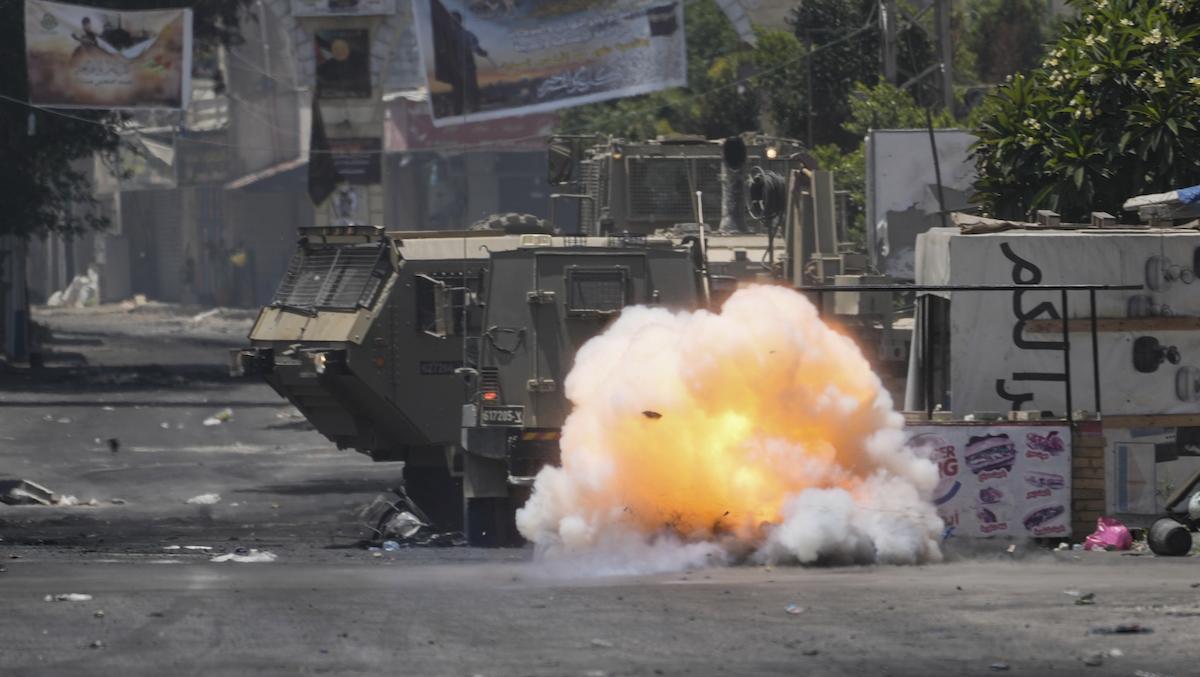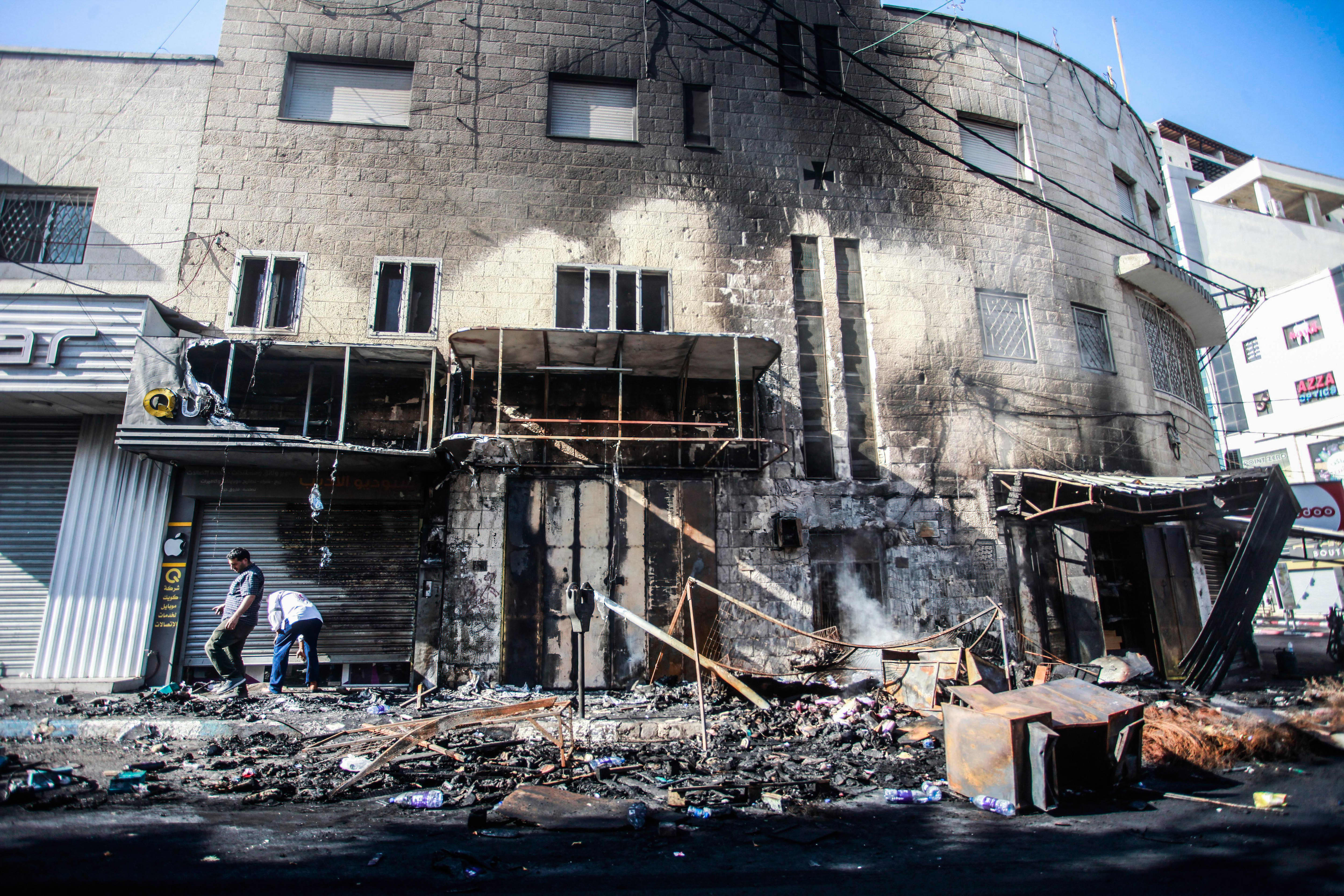
The Israeli military withdrew its troops from a militant stronghold in the occupied West Bank on Wednesday, ending an intense two-day operation that killed at least 13 Palestinians, drove thousands of people from their homes and left a wide swath of damage in its wake. One Israeli soldier was also killed.
The army claimed to have inflicted heavy damage on militant groups in the Jenin refugee camp in an operation that included a series of airstrikes and hundreds of ground troops.
But it remained unclear whether there would be any long-lasting effect after nearly a year and a half of heavy fighting in the West Bank.
Ahead of the withdrawal, Israeli Prime Minister Benjamin Netanyahu vowed to carry out similar operations if needed.
Get Connecticut local news, weather forecasts and entertainment stories to your inbox. Sign up for NBC Connecticut newsletters.
“At these moments we are completing the mission, and I can say that our extensive operation in Jenin is not a one-off,” he said during a visit to a military post on the outskirts of Jenin. “We will eradicate terrorism wherever we see it and we will strike at it.”
The Jenin raid was one of the most intense Israeli military operations in the West Bank since an armed Palestinian uprising against Israel's open-ended occupation ended two decades ago.
Since early 2022, Israel has been carrying out near daily raids in the West Bank in response to a series of deadly Palestinian attacks. It says the raids are meant to crack down on Palestinians militants and said they are necessary because the Palestinian Authority is too weak.
The Palestinians say such violence is the inevitable result of 56 years of occupation and the absence of any political process with Israel. They also point to increased West Bank settlement construction and violence by extremist settlers.
Israel struck the camp, known as a long-time bastion of Palestinian militants, early Monday in an operation it said was aimed at destroying and confiscating weapons.
Big military bulldozers tore through alleyways, leaving heavy damage to roads and buildings, and thousands of residents fled the camp to seek safety with relatives or in shelters. People said electricity and water were knocked out. The army said the bulldozers were necessary because roads were booby-trapped with explosives.
After troops left Wednesday morning, residents began emerging from their homes. They found streets lined by scorched and flattened cars and piles of rubble.
The military said it had confiscated thousands of weapons, bomb-making materials and caches of money. Weapons were found in militant hideouts and civilian areas alike, in one case beneath a mosque, the military said.
The withdrawal came hours after a Hamas militant rammed his car into a crowded Tel Aviv bus stop and began stabbing people, wounding eight, including a pregnant woman who reportedly lost her baby. The attacker was killed by an armed bystander. Hamas said the attack was revenge for the Israeli offensive.
Early Wednesday, militants from Hamas-ruled Gaza also fired five rockets toward Israel, which Israel said were intercepted. Israeli jets struck several sites in Gaza.
In Jenin, fighting continued until shortly before the withdrawal Wednesday morning.
The Israeli military said it carried out an airstrike late Tuesday targeting a group of militants in a Jenin cemetery. It said the gunmen threatened forces moving out of the camp. Israeli and Palestinian officials also reported fighting near a hospital in Jenin late Tuesday. An Associated Press reporter on the ground could hear explosions and the sound of gunfire.
Palestinian health officials said 13 Palestinians were killed during the Israeli raid and dozens were wounded. The Israeli military has claimed it killed only militants, but it has not provided details.
The large-scale raid comes amid a more than yearlong spike in violence that has created a challenge for Netanyahu’s far-right government, which is dominated by ultranationalists who have called for tougher action against Palestinian militants only to see the fighting worsen.
Over 140 Palestinians have been killed this year in the West Bank, and Palestinian attacks targeting Israelis have killed at least 25 people, including a shooting last month that killed four settlers.
The sustained operation has raised warnings from humanitarian groups of a deteriorating situation.
Doctors Without Borders accused the army of firing tear gas into a hospital, filling the emergency room with smoke and forcing emergency patients to be treated in a main hall.
The U.N.’s human rights chief said the scale of the operation “raises a host of serious issues with respect to international human rights norms and standards, including protecting and respecting the right to life.”
Kefah Ja’ayyasah, a camp resident, said soldiers forcibly entered her home and locked the family inside.
“They took the young men of my family to the upper floor, and they left the women and children trapped in the apartment at the first floor,” she said.
She claimed soldiers would not let her take food to the children and blocked an ambulance crew from entering the home when she yelled for help, before eventually allowing the family passage to a hospital.
Across the West Bank, Palestinians observed a general strike to protest the Israeli raid.
With airstrikes and a large presence of ground troops, the raid bore hallmarks of Israeli military tactics during the second Palestinian uprising in the early 2000s. But there are also differences, including its limited scope.
Israel captured the West Bank, east Jerusalem and the Gaza Strip in the 1967 Mideast war. The Palestinians seek those territories for their hoped-for independent state.



